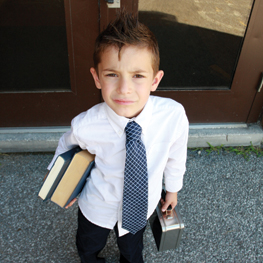



We knew early on that my older daughter would be visually impaired, and I was concerned how this would affect her socially. I remember confiding in her vision teacher when she was still an infant, “I just don’t want anyone to be mean to her, to make her feel less than or alone.” “Kids don’t see differences like adults do,” she assured me. “They just want to play.”

If you have a child who has been identified as gifted, you’re aware of the challenges they face in school. Whether the placement is a regular classroom or a specially designed program for accelerated learners, gifted children have unique needs. While every individual is wonderfully designed and no two have exactly the same needs, gifted children possess characteristics that set them apart.

For many people the holiday season is more stressful than fun. For example, we must attend awkward reunions with rarely seen family and friends. Or even worse, we find ourselves with family members with whom we are not on good terms. In addition, when we are entertaining at home, there are stressful decisions to be made about who to include in an invitation and who to leave out. Then, after each gathering are the discussions about how angry or upset, someone is about someone else's behavior.
It is estimated that 1 out of 5 families move every year; which means that for many families, the early weeks of summer are often filled with packing boxes, contacting new schools and finding new dentists. While transitioning to a new neighborhood or town can bring an assortment of stresses, this stress can be amplified when a family moves with a special-needs child. Routines, therapies and support networks can be disrupted and the entire family can feel on edge. Whether this is your first move or you are a seasoned veteran, the following tips will steer you and your family on the path to a smoother transition:
Calgary’s Child Magazine © 2024 Calgary’s Child